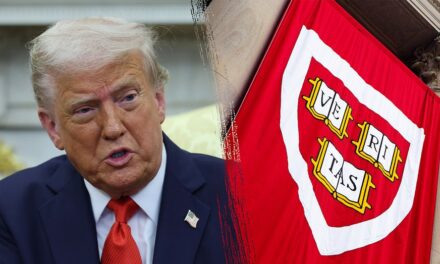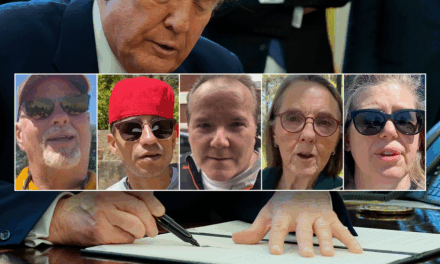In the wake of George Floyd’s tragic death in 2020, which sparked nationwide protests and discussions about police reform, the Minneapolis Police Chief has voiced critical concerns regarding the political landscape of the city, deeming it “bizarre” and out of touch with the realities faced by law enforcement and the community.
Chief Medaria Arradondo, who has served as the chief of the Minneapolis Police Department (MPD) since 2017, has openly expressed frustration at the current state of politics surrounding policing in the city. His comments come at a time when many cities across the United States grapple with the implications of police reform, community safety, and public trust in law enforcement.
The events following George Floyd’s death, particularly the global reaction and the reform measures that followed, have significantly impacted the way policing is perceived in Minneapolis. While there was an overwhelming call for reform and restructuring of police practices, Arradondo points out that some of the political responses have strayed far from addressing the reality faced by those in law enforcement.
Arradondo’s statements echo a sentiment shared by many in law enforcement who feel that decisions are often made without a comprehensive understanding of the complexities of policing. He has emphasized that politics should not be a performance; instead, it should focus on practicality and the direct needs of the community. He highlighted that many political debates around policing tend to ignore the necessities of public safety, ultimately impacting the effectiveness of the police force.
One critical aspect that Arradondo touched upon is the relationship between law enforcement and the community, which has increasingly become strained in recent years. Public confidence in police effectiveness has been waning, especially among communities of color, leading to a call for tangible changes in policies and practices.
“We have to recognize that policing is not just a political issue but a community issue,” Arradondo stated. He called for a cooperative approach to reform that includes active participation from police, community members, and political leaders. This would ensure that any reforms would be rooted in the needs and realities of those who live in the city.
In the wake of George Floyd’s death, many city leaders proposed a range of reforms, including budget cuts to the police department and alternatives to traditional law enforcement methods. The council’s attempts to defund the police received mixed reactions, further complicating the dialogue surrounding public safety solutions. Arradondo argued that while the intention may have been to promote police accountability and reduce violence, such drastic measures could inadvertently create gaps in public safety.
The chief also expressed concern that some political actions feel more performative than substantive. He pointed out that community members are looking for security and assurance that they can rely on police to respond effectively to their calls for help. This sentiment has been echoed by various community leaders who advocate for a balanced approach to safety, which involves both reform and a sustained commitment to effective policing.
Furthermore, Arradondo highlighted the additional challenges faced by officers in the field as they operate with heightened scrutiny and often amidst hostile environments. He stressed the importance of providing adequate resources, training, and support for officers to perform their duties safely and efficiently, which is equally essential for restoring confidence between law enforcement and the communities they serve.
Acknowledging the complexities of policing in a city like Minneapolis, Arradondo called for a recognition of the unique challenges that officers face daily. He emphasized that frustrations and anger directed at police should not overshadow discussions aimed at improving public safety overall. “You can’t change the narrative without addressing the issues head-on,” he said.
The chief’s remarks also included a critique of the political argot that often accompanies discussions around law enforcement—pointing out that the terms and statements used can sometimes alienate those who work in the police department or create misconceptions about the realities of policing.
At this juncture, the chief articulated a vision for rebuilding trust and fostering a collaborative environment between law enforcement and the citizens of Minneapolis. He proposes that law enforcement can succeed only when they work hand-in-hand with community members and leaders to identify the most pressing issues facing their neighborhoods.
In tandem, community organizations and residents in Minneapolis have taken proactive roles in seeking out collaborations with the police department. Initiatives aimed at improving community relations have emerged, with many local leaders advocating for town hall meetings and forums that allow residents to express concerns and share their experiences regarding crime and policing.
Arradondo reiterated the importance of listening to these voices, emphasizing that understanding community needs is pivotal in shaping effective policies that not only hold police accountable but also provide them the support they require to function effectively. He stated, “To improve relationships, we need a culture of genuine discourse and respect between all parties involved.”
As calls for police reform continue to rise across the country, Minneapolis stands at a crossroads. While the road ahead is fraught with challenges, it is clear that collaboration will be essential. Critics of the current political climate argue that without listening to the needs of police and community members alike, policies will continue to misfire and fail to serve the city’s residents adequately.
Looking forward, Arradondo’s critiques serve as a reminder that effective change goes beyond political performance. It necessitates compassion, understanding, and cooperation—core values that must define the relationship between law enforcement and the communities they protect. By forging a connection rooted in trust, Minneapolis can take significant strides toward creating a safer and more equitable environment for all its citizens.
As the city navigates through these turbulent times, the importance of recalibrating dialogues around public safety and law enforcement cannot be overstated. The path to meaningful reform is paved with challenges, yet it is imperative for leaders to remain grounded in the realities of their constituents, approaching community safety from a perspective that bridges gaps rather than deepens divides.
The Minneapolis Police Chief’s call for a more realistic and mutual understanding of policing reflects the urgent need for thoughtful discourse on public safety reform. Only through such dialogues can Minneapolis, and cities like it, hope to foster a future where communities feel secure, respected, and safe in their interactions with law enforcement.
































